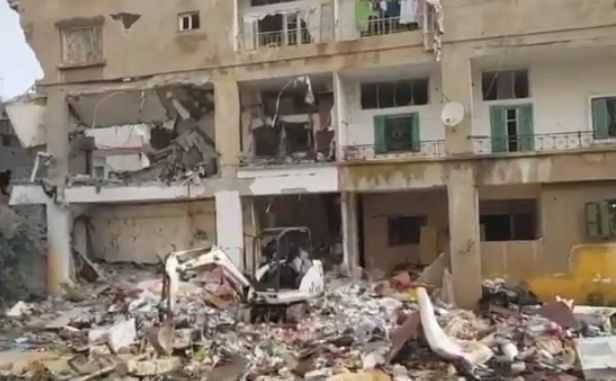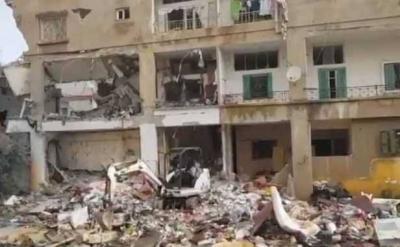In light of the aftermath of the massacre committed by Israel in Nabatiyeh on Wednesday night, it may be accurate to say that things will never return to how they were before. Lebanon witnessed two significant and impactful scenes on February 14: first, a large gathering beyond expectations met with former Prime Minister Saad Hariri at the tomb of the founder of Harirism in downtown Beirut; second, a bloody night marked by Israeli revenge that violated the towns of the south, striking Nabatiyeh and causing a horrific family tragedy. Subsequently, on the day after this event, a pressing and concerning question arose about the crises unfolding internally and along the borders.
However, developments in the south continued to loom large in the Lebanese scene, both domestically and internationally, as fears grew that all the rules of engagement that had governed confrontations between Israel and Hezbollah since October 8 may be on the verge of total collapse following the Nabatiyeh massacre. Israeli threats emerged in an unprecedented new form, such as Israeli Defense Minister Yoav Gallant for the first time hinting at a ground invasion as far as Beirut. It would be natural to pay attention to the speech that Hezbollah's Secretary-General Hassan Nasrallah is scheduled to deliver today, anticipating new positions in light of the recent developments as reported in "An-Nahar."
The Israeli defense minister also informed his American counterpart Lloyd Austin yesterday that there would be no tolerance in responding to Hezbollah's attacks. The Israeli minister stated, "Our planes in the skies over Beirut are carrying heavy bombs capable of striking distant targets," considering that the current escalation against Hezbollah is just one-tenth of what they could do. He added, "We can attack up to 50 kilometers deep into Beirut and elsewhere."
On the ground, according to "An-Nahar," the Nabatiyeh massacre remained at the forefront as the toll of martyrs and wounded from the Israeli strike on a residential area in Nabatiyeh rose to eight martyrs, including seven from the Berjawi family, with seven others wounded. A notable development occurred with the Israeli warplanes targeting southern villages and towns that had not been bombed since the beginning of the events. The official spokesperson for UNIFIL, Andrea Tenenti, expressed concern over the breakdown of engagement controls, stating, "We have witnessed a worrying transformation in the exchange of fire over the past few days, including targeting areas far from the Blue Line."
The intensification of the conflict has claimed a very high number of lives, including tragically, that of children. It has also caused severe damage to homes and public infrastructure, jeopardizing the livelihoods of thousands of civilians. He pointed out that attacks targeting civilians are considered violations of international law and constitute war crimes. The destruction and loss of life and injuries we have observed raise deep concerns, and we urge all parties involved to immediately cease hostilities to prevent further escalation.
After Hezbollah refrained from issuing its daily statements regarding operations against Israeli forces, it announced yesterday that, in an initial response to the massacres in Nabatiyeh and Al-Sawana, it attacked the Kiryat Shmona settlement with dozens of Katyusha rockets. They also reported targeting espionage equipment at the Rweisat Al-Alam site in the Shebaa Farms and the Zabdine barracks with a Falaq missile, as well as targeting espionage equipment at the Rahib site and gathering Israeli soldiers around the Zar'it barracks. It was reported last night that rockets had again been fired from the south towards the Kiryat Shmona settlement. Hezbollah quickly announced that it had shelled the Kiryat Shmona barracks with several Falaq rockets.
The Israeli army stated that its fighter jets attacked dozens of Hezbollah targets in the Wadi Seluqi area and Hezbollah's infrastructure in the Labouna area, as well as a military building belonging to the party in the Taybeh area. While the party mourned the loss of Ali Muhammad Al-Dibs and Hassan Ibrahim Issa, the Israeli army spokesperson reported that during the night on Wednesday, a central commander in the Qassem Forces, Ali Muhammad Al-Dibs, along with his deputy Hassan Ibrahim Issa and another element, were eliminated.




